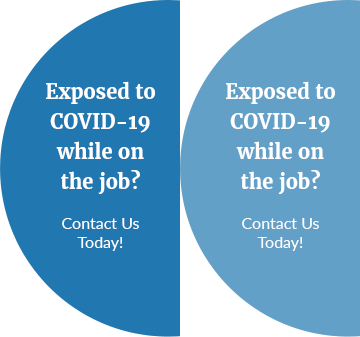Is It Worth Suing for Whiplash After a Car Crash in PA?
Dealing with the aftermath of a car accident in Pennsylvania is an uphill battle. One common injury reported by victims is whiplash, which is painful at best and permanently disabling at worst. Deciding whether to sue for whiplash adds another layer of stress. You may be feeling overwhelmed by medical bills, missed work, and the overall impact on your daily life
You’re under a lot of pressure right now, and having the right legal guidance can help you make the best decision for your future. Call Caroselli, Beachler & Coleman at 412-391-9860 to schedule a consultation now.
What You Should Know About Whiplash
Whiplash is a neck injury caused by a forceful back-and-forth motion, often resulting from a sudden impact like a car crash. This motion mimics the cracking of a whip, hence the name “whiplash.” It is especially common in rear-end collisions, but can also occur in sports injuries, falls, and other types of trauma.
Common Whiplash Symptoms
- Neck Pain and Stiffness: One of the most common symptoms, neck pain can range from mild discomfort to severe, debilitating pain. Stiffness often accompanies the pain, making it difficult to move the head freely. This can affect daily activities like driving, working at a computer, or even turning your head to converse with others.
- Headaches: These often start at the base of the skull and radiate towards the forehead. They can be persistent and vary in intensity. The constant headache can make it hard to focus and lead to irritability and fatigue, impacting both professional and personal life.
- Dizziness: Whiplash can disturb the inner ear or the part of the brain responsible for balance, leading to dizziness. This can make simple tasks like walking or climbing stairs challenging and increase the risk of falls.
- Blurred Vision: Vision issues can occur when the nerves connecting the eyes are affected. Blurred vision can make reading, driving, or operating machinery dangerous and difficult.
- Tinnitus (Ringing in the Ears): A constant ringing or buzzing sound in the ears can be both distracting and distressing. This symptom can interfere with sleep, concentration, and communication.
- Fatigue: The body’s response to injury often includes fatigue as it expends energy to heal. This can be compounded by the energy drain from managing pain and other symptoms, leading to a decreased ability to perform daily tasks.
- Memory and Concentration Issues: Cognitive impairments can arise, making it hard to focus on tasks, remember information, or make decisions. This can severely impact job performance and the ability to manage daily responsibilities.
Impact on Daily Life
The symptoms of whiplash can significantly affect an individual’s quality of life. Physical pain and discomfort can hinder a person’s ability to perform routine activities, participate in recreational pursuits, or even complete basic tasks. For instance, neck stiffness and pain can make it hard to sleep, leading to sleep deprivation and further exacerbating fatigue.
Chronic headaches and dizziness can impair concentration and balance, making it difficult to maintain employment or engage in social activities. Blurred vision and cognitive issues can diminish the ability to drive safely, work effectively, or enjoy hobbies that require focus and precision.
Tinnitus can cause significant psychological distress, contributing to anxiety and depression. The persistent ringing can also interfere with hearing, making communication challenging.
Overall, the multifaceted symptoms of whiplash create a cascade of effects that disrupt both physical and mental well-being, underscoring the importance of seeking comprehensive medical care and legal advice to address these challenges.
| Symptoms | Impact | Effects |
| Neck stiffness and pain | Physical pain and discomfort | Hinders routine activities, sleep deprivation, fatigue |
| Chronic headaches, dizziness | Chronic headaches and dizziness | Impaired concentration, balance issues, difficulty maintaining employment |
| Blurred vision, cognitive issues | Blurred vision and cognitive issues | Difficulty driving, working, enjoying hobbies |
| Persistent ringing | Tinnitus | Psychological distress, anxiety, depression, communication challenges |
| Multifaceted symptoms | Overall impact | Disrupts physical and mental well-being |
Legal Options After a Car Accident
After a car accident in Pennsylvania, you might wonder if you can take legal action, especially if you’re dealing with whiplash. If you believe the accident happened because another driver was careless, you could consider suing for your injury. Pennsylvania allows you to file a personal injury claim to seek compensation for your medical expenses, lost wages, and even pain and suffering. However, since Pennsylvania is a choice no-fault insurance state, your options depend on whether you have limited or full tort coverage.
To take legal action against the other party, you would need to show that the other driver was at fault and that their actions directly caused your whiplash. Gathering evidence, such as police reports, medical records, and witness statements, can help build your case.
Seeking Legal Action
If someone else is responsible for the accident in which you were injured, taking legal action could help you recover what you’ve lost. While this may be a little more challenging in Pennsylvania than in some other states, it can protect you from the significant financial losses that often come with these accidents.
Your first step will be to talk to an attorney. During a free consultation, the lawyer will learn more about your accident, ask about your injuries, and consider the losses you may have racked up already. They’ll tell you whether or not you have a claim against the other party and what they recommend for your next steps.
The good news is that most of these claims settle out of court, so the likelihood of you ever going to court is slim. This is a possibility, though, so you should keep it in mind when making your final decision.
Is Your Whiplash Serious Enough to Lead to a Personal Injury Claim?
Whiplash is an injury that can vary a lot in severity and prognosis, which means that there are no cut-and-dry answers about whether or not you should take legal action against the at-fault party. For most people, whiplash is a short-term injury that heals without any medical intervention or treatment. If this is the case for you, your attorney may not recommend seeking compensation, as you have to have measurable losses to recover anything from the other party.
However, other people aren’t quite as lucky. If you have a bad case of whiplash that causes severe soft tissue damage, chronic pain, and ongoing headaches, you may need regular medical care to manage symptoms. In these situations, you should consider fighting for compensation to cover your ongoing medical costs, as well as losses to your productivity and overall quality of life.
It all comes down tot he details of your injury, which is why it’s important to start by talking with a car accident attorney.
Choose Caroselli, Beachler & Coleman
The team at Caroselli, Beachler & Coleman is here to help you with your personal injury claim. Let’s set up a time to talk more about your legal options. Call us at 412-391-9860 or send us a message online to set up your consultation.









